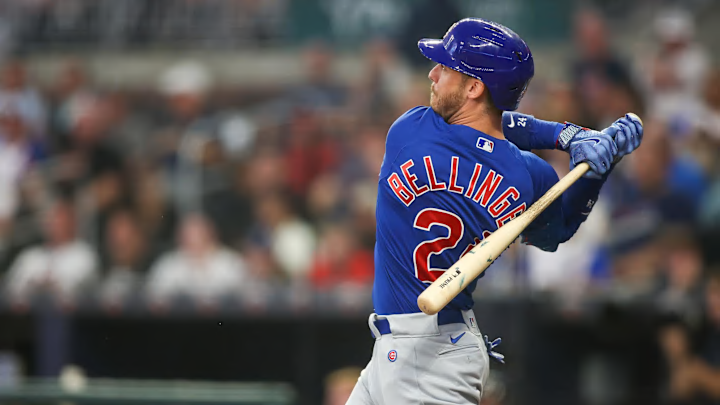Here’s a straightforward way to resolve the impasse between the Chicago Cubs and agent Scott Boras over the Cody Bellinger contract: an opt-out.
Not for Bellinger; for the Cubs.
The team and agent have been at solid loggerheads all winter now over the value of the club’s star player from 2023. Bellinger hit .307 for Chicago with an .881 OPS after signing a one-year, $12 million ‘make-good’ deal.
Given his numbers, nobody would argue that Bellinger failed to make good. His client having done so, Boras has set demands that reportedly include at least eight years and at least $200 million.
The Cubs have plenty of money to pay that; the question is whether they should. Prior to 2023, Bellinger had barely averaged .200 with an OPS hanging around .630 (MLB average is 100 points higher) the past three seasons.
Like every other team in baseball, the Cubs have dragged their feet on the kind of commitment Boras is demanding. They understand that most of Bellinger’s problems appeared to flow from an injury sustained during the 2020 postseason. They also understand that when he’s healthy -- as he appeared to be last season -- $20 to $25 million per year is a bargain price to pay for Bellinger.
But eight years? In the entire history of the franchise, the Cubs have only signed two players for that long. The first was Alfonso Soriano, and the second was Jason Heyward. Neither proved to be an endorsement for long-term commitment. Add in Bellinger's sketchy exit velocities, and you have a long-term concern.
The obvious compromise solution is one that’s used commonly in negotiations these days: an opt-out clause. In this case, however, the concept would be turned on its head. Instead of the Cubs giving Bellinger an opt-out, Boras should allow the Cubs to cancel the deal after two years if they conclude that their star isn’t as good as Boras promised he’d be.
If Boras has as much faith in his client’s future production as he says he does, this ‘concession’ should be a no-brainer. The entire premise of Boras’ pitch is that Bellinger is reliably back to his level of five seasons ago when he played MVP-quality ball. If the agent is anywhere close to correct about that, Bellinger would become even more of a hero on the North Side than he already is, and Cubs management would be foolish to exercise its opt-out.
At the same time, if the worst case scenario occurred and Bellinger reverted to pre-2023 form, Cubs management would have an escape mechanism.
Opt-outs are a common contractual device, except that they’ve always been given to the player. I know of no instance where a player gave a team an opt-out.
But the Bellinger case has unusual, if not unique, characteristics that invite a chance to provide the team some protection, while still acknowledging the high value the player is capable of producing.
Turning the opt-out concept on its head – allowing the team to opt out after two seasons – is the surest way to resolve the Bellinger-Cubs standoff.
2024 Baseball Hall of Fame results prove voters have lapsed into groupthink (calltothepen.com)
